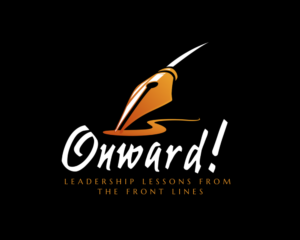Everyone has a monkey mind. Like the Curious George of our childhoods, our monkey mind is always playing, wandering off, and often getting us into trouble. Some peoples’ monkey minds think about the past, ruminating over missed opportunities, real or perceived slights, or how they might have done something different. Others like me focus on the future, either dreaming of beautiful tomorrows or worrying about all the things that could possibly go wrong.
As a result of my future-oriented monkey mind, I spend chunks of my days thinking about ways things could go sideways, slide backward, or fall off a cliff. I then spend a fair amount of the remaining time focused on making sure I am ready for the various possibilities — contingency plan A, response B, fallback plan C.
In many respects, my monkey mind has served me well. I like taking risks and trying new things, but I come prepared — often underslept, overstressed, and overprepared — but rarely unready. I honed the skill in the military and then put it into overdrive as an attorney, where I was paid handsomely to spot potential problems and draft ridiculously long documents to avoid them. In other ways, however, it has not. I can wrap myself around an axel of my own making, tied up in mental knots, or waste time planning for contingencies so unlikely as to be farcical. It also hasn’t served my physical and mental health particularly well. Spending too much time in fight-or-flight response mode is linked to a long list of health problems, which is exactly what led to my mental health and stress management journey six years ago.
So what do we do about our monkey minds?
On the personal side of things, there are several options. I have been working on changing my relationship with my monkey mind, practicing (mostly) daily mindfulness, spending more time in nature, and focusing on getting good quality sleep and exercise. Brains, like dogs and children, are better behaved with fresh air, vigorous play, and a nap. And when I notice myself obsessing about the future, I try to remind myself that it is just my monkey mind doing his thing. I have made progress, but my journey is far from complete.
On the business side, you greet the monkey mind with information, business intelligence and conversations with more experienced people. Their perspective and “This too shall pass” calmness is incredibly comforting to Type-A’s like me. This week is a good example. Things are going well. Morale seems good, our people are sticking with us through the Great Resignation, our results are strong, and we’re as well-positioned as we could be for spring considering the global supply chain challenges and the chaos that Russia’s invasion of Ukraine has created in agriculture and the fertilizer markets. Yet instead of being thankful for our good fortune, I pour over our cost metrics. Intellectually, I know we need to invest to grow. We need to invest in our people, systems, and infrastructure to support our new business. But emotionally, my insecurity about the inevitable market turn has me obsessing over the potential of getting administratively bloated.
On Thursday afternoon, our CFO, Willis, called me, following our morning discussion of last month’s results. “Are we getting too fat?” I’d asked. “This could get ugly when the worm turns.”
Willis went on to explain that his team had looked deeper into the numbers as well as had done some high-level comparisons against publicly available data from similar companies. As he methodically walked me through his team’s findings, I realized that not only were my fears unfounded but I likely have been letting my monkey mind cause other issues by vocalizing them so loudly. While trying to drive us forward, I may have been unwittingly holding us back or driving our people too hard.
What excited me about the conversation, however, was not simply the relief regarding my insecurities, but that in order for Willis to prove me wrong, four things needed to be right. First, we had to have our systems running well. Bringing together three companies and their independent accounting systems into a single system has been a Herculean accomplishment by our IT and accounting teams. They’ve also been working hard to improve it, giving us new tools to analyze the data. Second, we had to have the right people, those who had the curiosity to ask the questions and the grit to dig for the answers. Third, those people had to have the capacity to do the work. When you are new, you spend much of your time simply reacting to what the world brings. You can’t take the time to transform the data into information and intelligence. Finally, we have a culture where people can challenge the assumptions of those up the chain. I am incredibly fortunate to have Willis as our CFO. He and I have built a great relationship, but it still takes guts to call your boss and essentially tell him he’s wrong.
Sometimes it’s great to be wrong.
There is no defeating our monkey mind. There is only learning to live with it as an occasionally annoying friend. We remain in a very cyclical business with high fixed costs and thin margins. We know the storm will come. Part of my job is to make sure we’re ready. Thus, we want to be mindful of our costs in the good times because it avoids a lot more pain in the bad ones. But I take incredible comfort knowing that when the seas swell, the winds whip, and the rain rages, we have a team who trusts each other enough to challenge one another, systems we can rely on, and people with the curiosity, capability, and capacity to turn the data into information and intelligence, all of which will help us navigate the storm based on facts, not fears.
Onward!
Jeff





